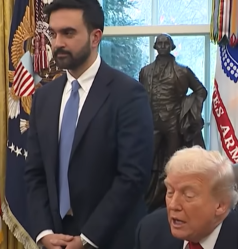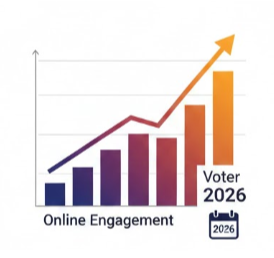Zohran Mamdani’s proposal for universal childcare is taking center stage in the NYC mayoral race, as Andrew Cuomo reenters as an independent and voters face a clear policy divide.
What to Know:
- Mamdani’s plan offers free childcare citywide, prioritizing low-income and single-parent families.
- Cuomo is staying in the race as an independent after losing the primary and is asking other candidates to drop out if they are not leading by mid-September.
- Mamdani leads in recent polling with 35 percent. Cuomo is second with 25 percent, followed by Sliwa and Adams.
- The plan is part of a broader economic message that also targets food affordability and wage equity.
- If successful, it could influence national urban policy and become a model for other progressive cities.
When Zohran Mamdani won the Democratic primary for New York City mayor, the headlines focused on the shock factor: a democratic socialist defeating Andrew Cuomo, a three-term former governor. But now, with Mamdani heading into the general election as the front-runner and Cuomo attempting a comeback as an independent, the city is becoming a national stage for a new kind of urban policy debate.
Zohran Mamdani; image from website
Mamdani’s proposal for free citywide childcare could reset the conversation about what local government owes working families. He advocates for public responsibility for basic needs like care and food access, proposing city-owned grocery stores to combat food deserts and rising prices.
Childcare as Public Infrastructure
Mamdani’s childcare platform proposes free, universal access to early education and daycare for all families in the five boroughs, with priority placement for low-income and single-parent households. His campaign calls it an “infrastructure investment in people,” akin to public transit or clean water. The plan would convert existing city-owned properties into childcare hubs, partner with community organizations, and expand staffing by offering union-backed wages for early childhood workers.
Image generated by DALL-E
Critics are already labeling the idea unworkable or overly idealistic. Cuomo, now positioning himself as the "viable alternative" to Mamdani, has avoided direct criticism of the childcare policy so far. Instead, his campaign insists that Cuomo is the only candidate who can “balance services with sustainability.” Still, the contrast is stark. Mamdani is offering a government-led expansion of the social safety net. Cuomo is promising what he calls “responsible growth.”
The childcare plan comes at a time when working families across New York City are being squeezed. The average cost of childcare in the city now exceeds $21,000 annually per child, making it unaffordable for many, even with two working parents. For comparison, CUNY undergraduate tuition is just under $7,500. Mamdani’s team points out that groceries, housing, and utilities have all spiked post-pandemic, and in neighborhoods like Flatbush and the South Bronx, families are increasingly forced to choose between childcare and food.
Childcare as Catalyst, Cuomo as Countermove
Mamdani is trying to position his plan not as a giveaway, but as an economic engine. His policy documents cite studies from cities like Helsinki and Quebec, where public investment in childcare has helped increase workforce participation, especially among women. Campaign surrogates argue that free childcare not only supports children’s development but also increases household income, reduces generational poverty, and stabilizes neighborhoods.
The broader implications are clear: if Mamdani wins and implements this policy, New York would become the largest city in the United States to offer fully subsidized childcare. Progressive leaders in other cities are already watching closely. “This is what governing with values looks like,” said one Chicago alderwoman who recently endorsed Mamdani. “It’s about rebalancing our priorities.”
Mamdani’s Public Market Proposal
Beyond universal childcare, Zohran Mamdani is pushing another big idea: city-owned grocery stores. Framing it as a solution to food deserts and rising costs, Mamdani argues that public grocery stores could serve as a direct challenge to corporate price gouging and help stabilize food access in underserved neighborhoods.
Image generated by DALL-E
His proposal would establish a network of municipally operated stores, stocked and staffed through partnerships with local farms and unionized workers. These city-run markets would prioritize affordability and nutrition, particularly in areas where residents currently rely on dollar stores or overpriced bodegas for daily necessities.
Still, the political stakes are clear. While Andrew Cuomo and Eric Adams continue to compete for relevance through strategic positioning, Mamdani is offering voters a vision that directly confronts day-to-day struggles. Grocery bills and food deserts may not make headlines like campaign finance or endorsements, but for many working-class New Yorkers, they are a top concern. Mamdani believes that directly addressing issues through initiatives like childcare programs or city-operated markets will secure him victory in the City Hall race.
Wrap Up
Zohran Mamdani’s free childcare plan is not just a campaign promise—it is a litmus test for progressive policymaking in America’s biggest city. If successful, it could shift the national debate over what city governments can and should do for working families. If it fails, critics will argue it was always too ambitious to begin with. In the meantime, the race remains unsettled, with Andrew Cuomo and Eric Adams still in play. But as Mamdani continues to lead both in polling and policy definition, his agenda is rapidly becoming the benchmark by which all others are being measured.

-4.png)


-4.png)
